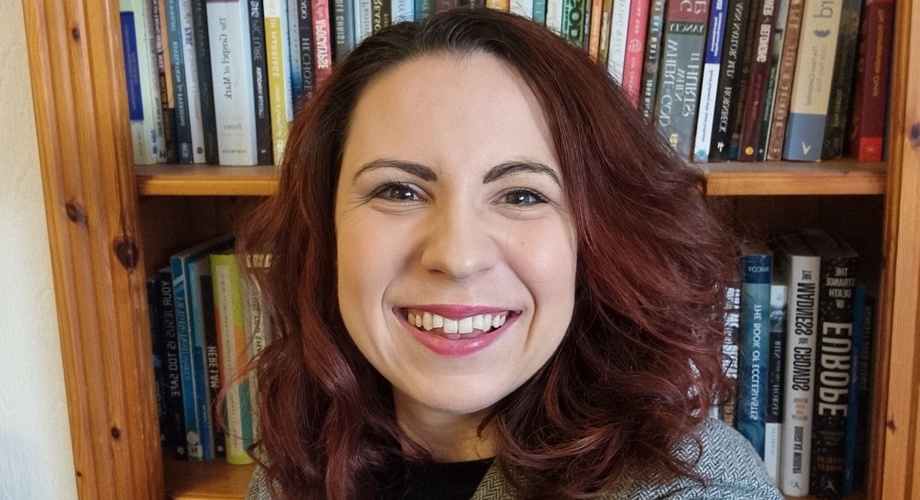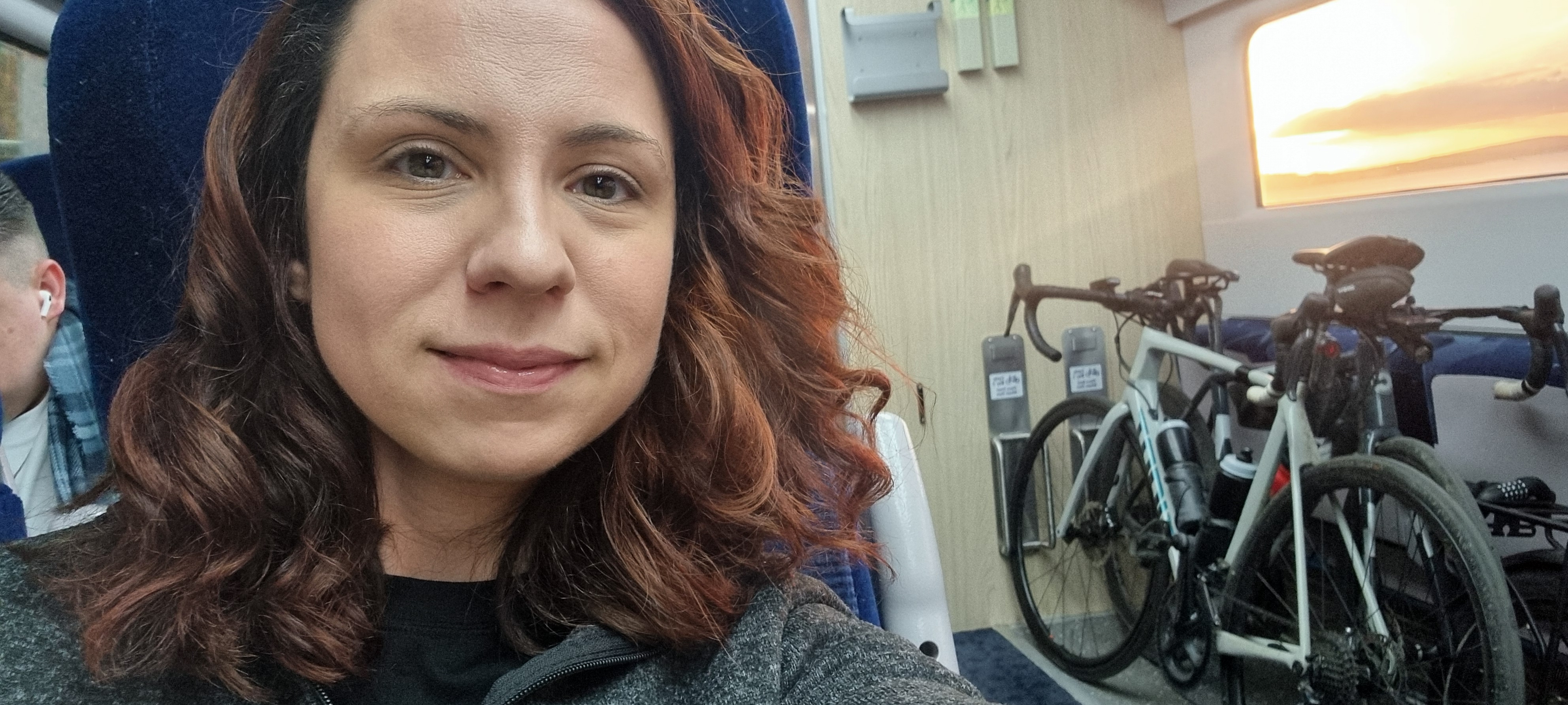
Dr Jennifer Dunn
20 December 2024
•6 min read

My early career in medicine
After 5 years as a surgical specialty registrar, I stepped away from the training path. It was a tough decision, as I loved my job and my patients. However, I’d become less engaged in training and decided to start my own therapy to help discover the reasons why.
After medical school, I started my medical career as a trauma and orthopaedic surgical trainee. At secondary school, I was interested in English Literature and Philosophy. I could have chosen to study any of these subjects at university. Still, I wanted to do something practical with my career.
Concerned about health inequalities and inspired by Jesus' example of caring for the neediest in society, I hoped to become a medical missionary. Working as a doctor in resource-poor countries appealed to me. I reasoned that the best way I could do that was to become a surgeon. I could take my hands with me.
Stepping away from surgical training
It was hard to decide to step away from the training path more than halfway through. I was feeling a certain amount of shame and fear at the time. Acknowledging to myself and others that I was not fulfilled or thriving was an important first step.
That’s when I decided to start my own therapy to try to figure out what went wrong in surgical training. I became fascinated with psychology. I also realised I was much more interested in the mind than anatomy or biomechanics!
Find what makes you tick
My husband, friends at church, and a few trusted colleagues provided lots of support during this time of uncertainty. My faith is very important to me, so I also prayed.
A friend asked, "Are you trying to be something you are not?" Along a similar line, someone else said, "A lot is said about how you can fit the demands of the job. Not as much is said about how the job serves your needs." Both comments helped me reflect on what matters to me and what I needed to grow personally and professionally.
In the end, I had peace of mind about my big career switch.
Even now, I still feel being a surgeon is a privilege. It's a wonderful and exciting job, but it isn't right for me. Sometimes, a period of reflection is required to help you realise what makes you tick.
Starting psychiatry training
Most were surprised when I told the wider cohort of trainees I was changing my career path from surgery to psychiatry. Some said, "You're used to fixing people in surgery. You won't get that so much in psychiatry." Another typical response was, "There will be more chronically unwell patients you can't help." It didn’t deter me.
I attended several psychiatry and psychotherapy conferences and was relieved to feel at home there. I also did my homework and contacted many consultant psychiatrists and trainees to discuss their day-to-day roles. These conversations were hugely helpful and helped me get a taste of what I was switching to.
I applied for psychiatry training on a less-than-full-time (LTFT) basis, which allows doctors in postgraduate training to work reduced hours. Outside of the NHS, I also enrolled in a foundation training course for therapists. This combination really is my dream job!
Starting psychiatry training along with nurturing my psychotherapy interest has been the best career decision I've made. Allowing myself space to explore these options has been vital.
My typical week as a psychiatry core trainee
I am in my second year of core psychiatry training. My typical week involves talking to patients and their families and liaising with colleagues. I spend some time on acute, inpatient wards reviewing medications or doing physical examinations. In all these interactions, I listen closely to my patients and what they tell me about their inner world.
I work closely with invaluable psychiatric nurses. They form strong relationships with patients and are also trained in some psychotherapy competencies. I am often bowled over by their patience and pragmatism.
I also work with psychotherapists and appreciate their insight into team dynamics. These dynamics can become very intense in ward environments, no matter where you work in medicine.
In the evenings, I study for my psychiatry postgraduate exams. On my days off, I travel to another city for my own therapy and to attend psychoanalytic theory seminars. I spend lots of time on trains, living an hour and a half away from the psychiatric hospital. I usually read the Bible, psychology papers, or poetry on my commute.
What about family life? Even with such a busy schedule, I find time to spend with my family. Life is hectic but also stimulating!
The best part of my day
I love forming a deep, therapeutic relationship with patients, making them feel understood. Apart from the medication and other interventions, this can make patients feel better as someone is with them in their psychic pain. My patients' trust in me is a great privilege.
I also enjoy interacting with my psychiatry colleagues. They are an eclectic, reflective, and humorous bunch!
You may not think it, but a lot of humour is floating about on an inpatient psychiatric ward. Some patients maintain a great sense of humour even when unwell. It's an important coping mechanism but also very humanising. I have occasionally been caught belly-laughing along with a patient in both inpatient and outpatient settings!
Making time for learning and career development
I have been really struck by how key my interest in psychoanalysis has been to my patient interactions at work. The seminars I do in my own time and my personal therapy allow me to reflect on clinical interactions in a way I find stimulating. Even the reading for the psychiatry exams has been interesting and can inform my work. I also write poetry, which is a valuable way to process emotions about life and work.

Psychiatry is not just about prescribing medication
There is still a stigma in society around mental health. However, treating my patients with the love and respect they often have not received elsewhere is a privilege.
Sometimes, people think that psychiatrists just prescribe medication. Where medication changes are helpful and needed, listening carefully to my patients is vital to clinical decision-making and their recovery. Often, my role is saying 'no' to medication requests. Other aspects of the patient's life or relationships could be responsible for their symptoms, not the neurochemistry!
Why I'm proud to work in the NHS
Many of our patients have faced difficult life experiences. They may be in a lower socio-economic bracket than others in society because of this or due to their mental health difficulties. They would unlikely be able to access private health care or pay health insurance. It is imperative to care for this patient population. I am glad that mental health care is freely available in the NHS to all in society.
Looking back, would I have done things differently?
I've thought a lot about this and would not have done anything differently. I'm glad I didn't study English Literature or Philosophy at university, as I wouldn't be training to become a psychiatrist now. Equally, had I not been in surgical training, I may not have had to reflect on what really made me happy.
I remember sitting with a very unwell, psychotic patient on my first out-of-hours shift in psychiatry. As they talked and I tried to listen, feel and understand with them, I thought, 'I love this.' I felt at home in the role and knew I had made the right decision to change specialties.
My next career steps
As a core trainee, I must pass my psychiatry exams to apply for higher training. I want to train as a therapist alongside this. I am keen to continue treating all patients, not only those who can afford private therapy. I hope both roles will complement each other. I also hope to keep enough space free in my week to continue to write and publish poetry, prose, and research.
My career advice to you
Cheesy as it sounds, my advice is to follow your heart. I was blinded by what it would be like to become a surgeon. I ignored what was special and unique about me, such as my ability to communicate creatively and my interest in the mind. These qualities have found a home in psychiatry, and I am incredibly grateful to be a trainee in this specialty.
Also, changing careers is ok! I would rather be a happy trainee than an unhappy consultant. Life is about more than becoming a consultant as quickly as possible. Your career path is important, so please take the time and space to reflect and do what’s right for you!